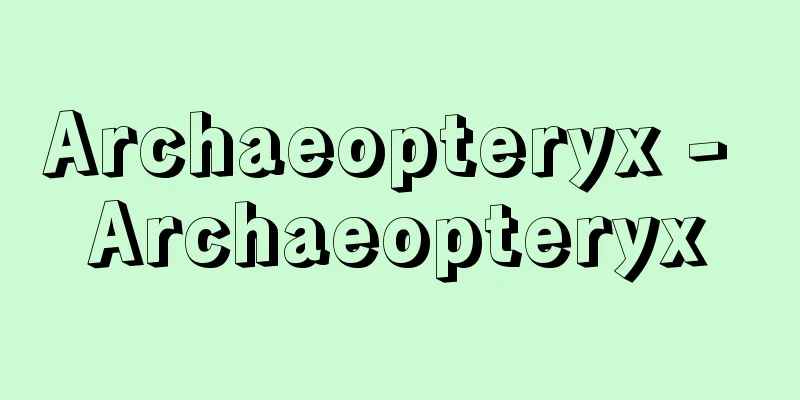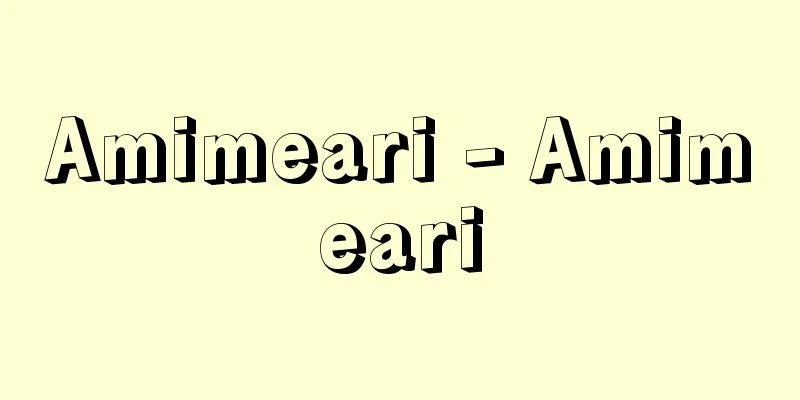Philosophy - tetsugaku

|
A translation of the English word "philosophy." This translation was adopted by Nishi Amane through his work "Geitetsu" (Hyakuichi Shinron, 1874). The European word comes from the Greek word philosophia (philein + sophia (love of wisdom)). Just as the ancient Greek concept of wisdom included knowledge of the true (theoretical wisdom) and moral practice (practical wisdom), philosophy includes the rational recognition of things and the pursuit of human virtue. In both cases, the content is a consistent and systematic explanation of reality and its criticism. The explanation and criticism of reality do not directly address the things and phenomena of nature and human society, but rather the exploration of their relationship with humans. In the case of history, philosophy is the exploration of the meaning of history, not historical facts. Therefore, philosophy has a close relationship with the natural, human, and social sciences, but ultimately it is an intellectual effort to create a basic perspective that integrates various experiences. In the West, there is a long tradition of philosophy, which can be said to justify knowledge through knowledge, and when people talk about philosophy, they are often referring to Western philosophy. It is possible to relativize Western philosophy from the perspective of the history of civilization, and in some cases it is necessary, but the thoroughness of pushing the movement of logos (word, reason) to its limits is a characteristic not seen in other traditions of thought, and easy criticism or overcoming of it should be guarded against. Source : Heibonsha Encyclopedia About MyPedia Information |
|
英語philosophyなどの訳。西周(にしあまね)により,〈希哲学〉を経てこの訳語が採用された(《百一新論》1874年)。欧語はギリシア語philosophia(philein+sophia〈愛知〉)に由来する。古代ギリシアの愛知の概念が真なるものの知(理論知)と道徳的実践(実践知)を含んでいたように,哲学には物事の合理的認識と人間の徳の追求が含まれる。そしていずれの場合も〈現実〉の整合的・体系的説明とその批判が内容をなす。〈現実〉の説明・批判は,自然や人間社会の〈もの〉や現象に直ちに向かうよりも,それらと人間とのかかわりあいの探求に向かう。歴史の場合にも,歴史的事実ではなくて歴史の意味の探求に向かうのが哲学である。したがって,哲学は自然・人文・社会諸科学と密接な関係をもつが,最後にはさまざまな経験を統合する基本的観点をつくる知的努力となる。西洋にあっては,この知による知の根拠づけとも言うべき哲学の長い伝統があり,哲学といえば西洋哲学を指すことが多い。文明史的観点から西洋哲学を相対化することは可能であるし,場合によって必要であるものの,ロゴス(言葉,理性)の運動を極限まで押し進めるという徹底性は他の思想伝統には見られない特質であって,安易な批判や超克こそむしろ警戒されるべきである。
出典 株式会社平凡社百科事典マイペディアについて 情報 |
<<: Philosophical magazine - tetsugakuzasshi
Recommend
Thermite process - Thermite method
A refining method that utilizes the thermite reac...
Addressed to the hospital - Addressed to the hospital
...The first appearance of a letter to the Togush...
Ipecac (English spelling)
A woody herb of the Rubiaceae family that grows un...
Tria Kephalaia (English spelling)
…The “Tria Kephalaia” (Three Chapters) refers to ...
Institution - Seido (English spelling) institution
It refers to a complex system of social norms. In...
Iitaka Danrin
...The Nichiren sect's Seizan sect also estab...
Mallard duck - Gagamo
…They are also called monsters, demons, or demoni...
Ceefax
...This refers to broadcasting that aims to provi...
Wilson, J. (journalist)
…The world's oldest and most authoritative we...
Metallized water
…Below that is a layer of high-pressure liquid hy...
Cinna, Lucius Cornelius
[raw]? Died 84 BC. Ancona. An ancient Roman politi...
Ushakov, GA (English spelling)
...The surface of the land not covered by glacier...
Browallia
...A perennial plant of the Solanaceae family nat...
Yitzchak Ben Zvi
1884‐1963 Leader of the Israeli labor movement and...
Hyperactivity Disorder
…Some conditions show the exact opposite patholog...









